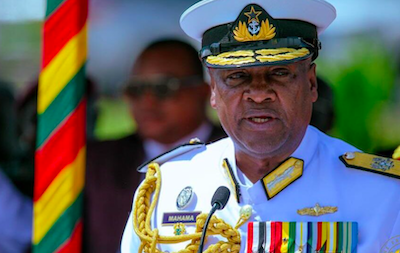President John Dramani Mahama addressed hundreds of graduates at the Ghana Military Academy in Accra, delivering a stern warning against raising false crime alarms.
Dressed in full naval regalia, Mahama assured citizens that his administration would leverage the investigative capabilities of Ghana’s security services to thoroughly probe all crime allegations. The ceremony, which marked the graduation of the Regular Career Course 63 (RCC63) officers, underscored the president’s commitment to national security and unity, drawing significant attention for both his message and his symbolic attire.
Mahama’s appearance in military uniform sparked widespread discussion, with many viewing it as a powerful gesture of solidarity with the Ghana Armed Forces. Joyce Bawah Mogtari, a senior presidential advisor, praised the move as a display of patriotism, noting its symbolic importance in fostering national unity.
President John Mahama and the Dicey Speech on Crime Alarms During Ghana Military Academy Graduation
Some observers believe Mahama’s warning may have been directed at specific individuals, notably Rev. John Ntim Fordjour, the Ranking Member on Parliament’s Committee for Defence and Interior. Fordjour recently made explosive claims about planes allegedly linked to cocaine trafficking and money laundering in Ghana, assertions that were swiftly dismissed by government officials as false. During an interview on Metro TV, Fordjour doubled down, calling for an independent investigation into what he described as security protocol breaches enabled by diplomatic privileges. Mahama’s pointed remarks about false alarms could be interpreted as a subtle rebuke of Fordjour’s allegations, signaling the president’s intent to clamp down on unverified claims that could destabilize public confidence in his administration.
This isn’t the first time Mahama has donned military gear—having previously worn army camouflage in 2016, his choice of attire has historically stirred debate about the appropriateness of a president wearing such regalia. Yet, at this event, the focus remained on his message, which emphasized trust in the security apparatus to handle crime allegations responsibly.
The president’s remarks come amid heightened public scrutiny of crime and security in Ghana, particularly following recent allegations of criminal activity involving high-profile figures. Mahama’s call for citizens to avoid spreading unverified claims reflects his administration’s broader push for transparency and accountability, a sensitive issue given his own history. In 2016, Mahama faced accusations of bribery after accepting a $100,000 Ford Expedition from a contractor, an incident that, while not deemed bribery by the Ghanaian Commission on Human Rights and Administrative Justice, highlighted vulnerabilities in his administration’s adherence to gift policies. His return to power in January 2025 has been marked by efforts to rebuild public trust, including investigations into controversial projects like the National Cathedral.
As Mahama continues his second term, his engagement with the military and focus on security signal a strategic effort to strengthen his leadership image. Having already appeared in army and naval uniforms, speculation is rife that he may next don the Ghana Air Force blue, completing his symbolic tour of the armed forces’ regalia. For now, his administration faces the challenge of balancing rigorous crime investigations with maintaining public trust, a task made more complex by lingering questions about transparency and accountability from his past



